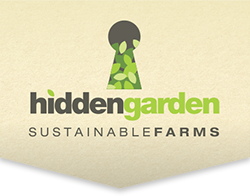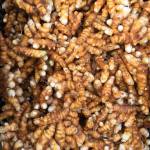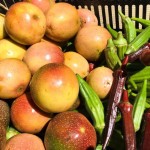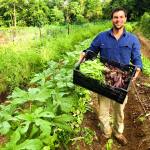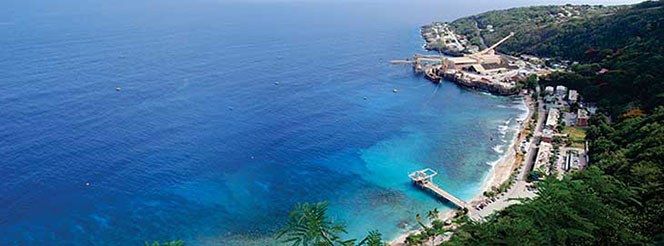

A truly sustainable waste to resource project
Hidden Garden Sustainable Farms now supplies fresh, vital and nutritious organic fruit and vegetables to the community of Christmas Island. We’ve come a long way from our very first harvests of lettuce and salad leaves. Locals now enjoy a range of chemical free, freshly grown seasonal produce including okra, eggplants, beans, cucumber, fresh herbs, chillies, fennel, butternut pumpkin, radishes and Asian greens. Locals have never had such choice.
We’re also taking group and individual bookings for our Hidden Garden Sustainable Farm permaculture training workshop, courses and internships. Call Mark Bennett on +61 (0)403 004888 for more information.
Realising our vision for Christmas Island…
We’re on our way to realising our vision to create a sustainable organic farming model producing a variety of quality produce that showcases solutions to waste management, food security and viable local business opportunities that can be replicated in other remote communities. Our Christmas Island farm is becoming a working example of how education and outreach can influence change in attitude and behaviour towards fresh, local organic produce.
Need for the Hidden Garden Farm
For all its beauty and exotic charm, Christmas Island is one of the most unsustainable places in Australia. This remoteness provides a unique platform of opportunity as the issues here epitomise those of other rural and isolated communities.
Food security is a significant issue for Christmas Islanders with over 95% of fresh produce being imported, prior to Hidden Garden Sustainable Farm. That figures is improving with every harvest. Residents and visitors now rely a little less on shipping and flight availability for their delivery of fresh produce. Our Christmas Island farm was a hit from the very beginning with such high demand for fresh quality food, so scarce or non-existent at times due to the island’s remoteness and the weather fluctuations. Expense was also an issue – with airfreight costing approximately $7.50/kg and sea freight costing at least an additional $3.50/kg it has been conservatively estimated that before having Hidden Garden produce, Islanders paid over 250% more than their mainland counterparts for fresh fruit and vegetables. Items such as an iceberg lettuce regularly fetched prices in excess of $12 each. We’re proud to see our growing range of fresh, chemical free produce in the local stores.
Waste Management
Christmas Island, like so many island communities around the world, has a significant issue dealing with its waste materials. Untreated organic waste can have significant impacts on the ground water supply and community health. With limited space to bury wastes and an ever increasing volume, waste management issues on the island are mounting. The Hidden Garden Farm offers a real solution by taking every-day waste on the island and turning it into a resource that can significantly improve community health and the environment.
Island economy
As it grows, Hidden Garden Sustainable Farm has the ability to contribute to the much needed diversification of the Christmas Island economy. Since the Island’s first settlement, phosphate mining was the mainstay. Its finite timeline and the need to transition to a post mining economy in a rational way is encouraging the introduction of other sound and sustainable industries and initiatives. Emerging industries such as horticulture, responsible tourism and education will assist in this rational transition and ensure the people of Christmas Island will have a brighter economic future. Our farm now grows fresh produce on a rehabilitated mine site – just the beginning.
Community and Government support
Establishing a horticultural industry on Christmas Island has strong community and government support and has featured in key planning strategies. The Our Future, CI 2018 Plan endorsed it as one of the Island’s priority actions. In addition, the Indian Ocean Territories Economic Development Strategic Plan 2010 – 2015 recognised diversification was key to Island longevity and decreased reliance on government. That plan also recognises that the horticultural industries can support a rational transition to a post mining economy.
The Hidden Garden team continues to work with the Christmas Island community, its elected representatives and the Federal government to ensure this project has widespread support. Our Hidden Garden Sustainable Farm site was visited twice by the Minister for Regional Development to see the project first hand.
The Hidden Garden Farm
To minimise the Farm’s impact on the Island’s delicate eco-system it is purely organic and based on natural biological farming techniques. Community generated organic waste currently collected by the Shire and buried in landfill is utilised to make Bio-Vital™ compost. The farm site itself is located on previously mined, unproductive land. The compost is used to remediate the soil and create raised garden beds.
A 1 hectare site was developed using the current on-island waste streams and now produces nutrient-rich biologically active Bio-Vital™ compost which forms the basis for horticultural production.
An organic market garden has been established initially over 2 hectares which is self- propagating. It supplies seeds and seedlings to plant each subsequent 2 hectare block. Roofed greenhouses are also planned to protect crops from climactic factors, such as the unseasonably heavy rains of 2016 and to collect water. They will also incorporate a combination of controlled systems, including under-roof soil systems, tropical hydroponics and/ or aquaponics. A mixture of open-air annual row cropping and permaculture food forests on the remainder of the site with specialty and perennial crops ensures a consistent, weekly supply of produce. Our flexible poultry system known as “chicken caravans’ can be moved to allow wide-spread foraging and supplies eggs as well as valuable manure production, pest and weeds control.
Community benefits
In the future we plan to establish a trust fund to benefit the local community with a percentage of the total operating profits from Christmas Island Hidden Garden Sustainable Farm. This fund will be available for local projects primarily with a horticultural or environmental focus and will be administered by a Board of local representatives that will call for and assess submissions.
The project also assists with the implementation of the Shire’s waste management strategy via the productive use of the community’s waste. We use the majority of waste from landfill and dramatically reduce greenhouse gas emissions. As the Bio-Vital™ compost manufacturing system uses an aerobic process to break down waste it does not generate significant greenhouse gas emissions and when applied to soil, greatly improves the soil’s ability to sequester carbon. The compost in turn is used to remediate soils and make land productive again, on the farm and also in the rainforest rehabilitation program currently run by Parks Australia.
Education and training
Take an ‘eco-adventure’ on Hidden Garden Sustainable Farm, Christmas Island, and join the permaculture revolution with the power to save the planet. Join Hidden Garden Co-founders, environmentalist Mark Bennett and third-generation organic heritage farmer, Paul Taylor and guests for life changing permaculture learning against the back drop of stunning Christmas Island. Through our range of practical ‘hands-on’ introductory workshops; Permaculture Research Institute (PRI) approved courses and in-depth intensive internships, you’ll learn the concepts of sustainable living and how to design resilient and robust permaculture systems for your own backyard, farm or business. Dive into paradise on Christmas Island and combine your next holiday with a learning experience that will change the way you live forever. Workshops and courses can be taken stand-alone or as part of our six week practical permaculture internship. Call Mark Bennett on +61 (0)403 004888 for more information if you are interested in a permaculture course or workshop.
Future plans also include accommodation for farm visitors ranging from covered camping options to eco-friendly cottages developed in a rainforest setting alongside to farm activities. This initiative will assist in the development of the local tourism industry.
